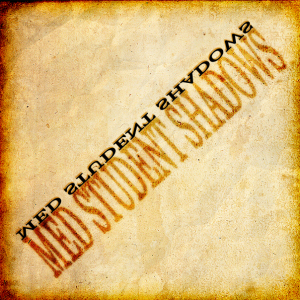Welcome, Player One! First clerkship. Ready? Go!
LEVEL 1, PSYCHIATRY ACUTE INPATIENT SERVICE, MISSION NOTES:
Med student didactics at 0700 daily. Rounds start approximately at 0800. Comprehensive interview with team at bedside. Ask about daily activities and goals. Enter orders while running list. PM schedule varies. Check desk for group session and recreation schedules. Plan to admit at least eight patients in three weeks. Work closely with social services to coordinate disposition.
Great job! You learned two new moves: SIGECAPS and DIGFAST! Next level…
LEVEL 2, INTERNAL MEDICINE HOSPITAL TEAM, MISSION NOTES:
AM sign-out at 0600. Follow one to two patients. Med student presentations should be concise, but longer than residents’. Run through entire problem list. Be prepared to share three learning points each morning at rounds. Attendance at noon conference optional. Present on a relevant topic and forward articles for evidence-based discussion to team in PM. Assist with discharges and orders. PM sign-out at 1800.
You got the Super Stethoscope Power-Up for catching Aortic Stenosis Murmur! Time to shake things up…
LEVEL 3, SURGERY CHIEF SERVICE, MISSION NOTES:
Arrive at 0500 to record numbers on all service patients. Memorize vitals, ‘lytes, CBCs, ins and outs (intra- and post-operative), drain outputs. Preround with chief at 0600 with detailed but efficient presentations. Remove dressings on post-op day two. Table rounds at 0700, presentations should only be a few lines. Help sign patients’ sites, arrive to OR before they do. Prep patient and insert catheter. Know your glove size. Scrub into as many cases as possible. Know at least how to instrument and two-hand tie. Stay after cases end to help move patient, wrap up SCD machine, move to PACU. Wipe down all surfaces and reorganize OR. Check on patients, remove any drains or change any dressings. PM round time variable. Sign-out at 0600 if not staying for overnight call.
Congratulations, you defeated Overnight Call! Ready for the next level? Here we go…
Objective of this game? Master the third-year rhythm: conquer a clerkship, start anew, conquer a clerkship, start anew.
It feels staccato, abrupt with the first few rotations — at least that was my experience. At the start of my clinical clerkships, I was thrilled and frightened. I felt like I was jumping off a cliff and into an ocean of unknowns. But after about a week, things got better. After another week, I felt comfortable. And just as I felt my fingers close around an actual role on my team — as I thought that maybe I could pull myself to land again — I had to let go of everything and start sinking into new, uncharted waters.
For many people, routine is comfort. But in third year, the only routine is the constant change in routine. Each clerkship comes with its own challenges, expectations and traditions. Even things that are theoretically universal, like sign-offs and presentations, turn out to be tailored to each specialty. It makes sense because each specialty is so different — the beauty of medicine is how diverse it can be — but it makes things hard for a medical student still learning how to suture and breathe at the same time.
But a word of comfort: finding the rhythm of each rotation gets easier. You eventually fall into the cadence of third year and get used to its cycle. You learn how to play the game.
I found that as I progressed through my clerkships, I carved out my role on the team more and more quickly. I felt comfortable on each service after adjustment periods that dwindled down from several days to only one day, maybe even less.
The anxiety and excitement from starting a new rotation never goes away — but those feelings are also what make starting a new rotation fun. Instead of setting up your Disney Princess lunchbox before your first day of second grade, you find yourself setting up your backpack, pager and stethoscope before the first day of a new rotation.
Third year is a lot like a video game. You progress through levels, each of them completely different — and this makes things scary and exciting at the start of each one. Will this level take place in an enchanted forest? An underwater shipwreck? A pitch-black subterranean labyrinth? A crumbling volcanic fortress?
No matter what you are thrown into, you have to get used to each new one, collect tools specific to each in order to succeed (Neurology examination bonus, you earn a Silver Reflex Hammer! Running Subcuticular Stitch Bonus, you win a Lightning Needle Driver!), and face a new challenge in each (Beware! Fever of Undetermined Origin!). But at the end of each one, you gain one new heart to add to your collection — you get bigger, stronger.
By the end of the video game, by the end of the third year, you will have learned so much, gained so much, and mastered so much.
Video games are easier than clinical clerkships, but the latter are more fulfilling.
Done with another clerkship. Level up! What’s next?
As medical students, we shadow physicians to learn about the nature of medicine from them and their patients. In this column, Diem traces her own shadow, preserving and illustrating her experiences—in class, in the hospital, and in between—as a humble medical student.

